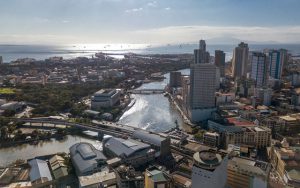The 21st World Travel and Tourism Council (WTTC) Global Summit, initially slated to be held in the Philippines next month, has been postponed to March 2022, tourism secretary Bernadette Romulo-Puyat shared during Philippine Travel Exchange (PHITEX 2021) in Subic.
Planned as a hybrid event, the summit was supposed to draw 650 in-person, with another 30,000 individuals tuning in via the digital platform.

Downplaying the impact of the postponed event, Rajah Travel chairman and CEO Aileen Clemente said that “every postponement is always a mutual decision between the WTTC and the host country, so it doesn’t happen that we lose the hosting rights just like that”.
On the other hand, C9 Hotelworks’ managing director Bill Barnett pointed out: “For WTTC, there is merit in a first-mover advantage to return to the stages so it makes sense to stop delaying. If travel is to survive, it has to learn to live with Covid-19.” He further cited the AHIC (Arabian & African Hospitality Investment Conference) that was held in Dubai this week which was “a big success with a large in-person contingent”.
As other international events were similarly postponed or cancelled as the pandemic continues to wreak havoc in the Philippines, Clemente pointed out “there has to be better implementation and consistent implementation of protocols”.
For instance, as business events happen in controlled environments, it is possible to conduct events on a smaller scale, perhaps starting with a 30 per cent capacity, she pointed out.
“What is hurting (the tourism industry) is the inconsistent implementation and lack of attention to the actual causes (of infections). For example, the lack of building ventilation and filters, as well as lack of in-depth statistical requirements in tracking the movement of Covid-19 such as interoperable contact tracing,” she lamented.
Clemente added that alert levels and quarantine parameters have become so confusing that governmental units also run into problems when it comes to implementation.
In the Philippines, event venues, hotels and restaurants are either opened with reduced capacity or closed depending upon the lockdown classification of the destination as determined by the local government every two weeks.
Metro Manila is currently under the second-highest alert, Level 4, until the end of this month, which means that events cannot be held.











